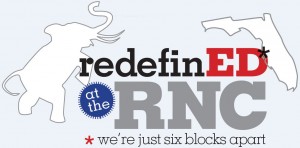by Eva S. Moskowitz
Big. Bold. Fast. I constantly remind my team at Success Academy Charter Schools in New York City that as well as we are doing in rolling out new high-performing schools (we have one of the most ambitious plans in the nation) we can’t possibly move fast enough. While we now serve thousands of students with a better public education than they otherwise would have gotten, our city has hundreds of thousands of students who need better school options.
It isn’t possible to work as quickly or as urgently as this problem requires. Each year in my city, thousands of students are added to wait lists at high-performing charter schools and the city’s elite public school test-in programs. If you don’t get in, you have school choice but you have to either choose from among lousy zoned district schools, expensive private schools, or move to suburbia.
With the need for more great schools crystal clear in New York and around the country, it is absurd that we could even be having this national debate over whether or not there should be a federal role in education. Of course there should be a federal role, especially in the area of parent choice.
During the recent “I3” competitive grant competition and President Obama’s “Race To The Top” competition, we saw enormous leverage for reform from Washington. Many people didn’t know that leverage was possible, but the proof is in the pudding. States (many with Democratic governors) like Tennessee, New York, Illinois, and Massachusetts lifted caps on the creation of new charter schools – in large part because President Obama and Education Secretary Arne Duncan dared them to.
The Obama administration used its bully pulpit and a relatively small amount of federal money to incent smart, pragmatic policies at the state and local levels. The federal government ought to be able to do the same thing to incent urgency in statehouses, school districts, and on the ground in communities that desperately need good school options.
Bigger. Bolder. Faster. Yes, the federal government ought to be in a position to point its finger at states and districts and say, “Folks, we love you, but your kids are dying. You need to move faster!” At Success Academy Charter Schools, we see this as a moral imperative – the same moral imperative that led to the creation of Title I and IDEA, among other civil rights initiatives. Do federal legislators really think they can afford to sit silently, while the opportunities of another generation of students vanishes?
There are school providers like ours, all over the nation, who should be encouraged (and incented) by the federal government to expand their offerings. It should be a national priority to expand great school options to families by any means necessary. Congress should support measures, like Rep. Jared Polis’ All-Stars Act, which would put much-needed federal resources behind replicating successful school programs.
Growing and replicating great schools costs money, beyond the per-pupil amounts that support schools once they are up and running. There is planning time, real estate issues, outreach to the community, and other important up-front investments. Federal-local partnerships can help to grow great school options for families with an eye on quality. We can’t do this work fast enough, and neither can Congress and the White House.
Does this have to be viewed as an attack on federalism? I don’t think so. The real action in education will always be on the ground in local communities. That is, education will always be a local issue. But the federal government can, and should, step in and remind states and districts how urgent the education problem has become. This is a national issue which requires a nationwide response.
Eva S. Moskowitz is founder and CEO of Success Academy Charter Schools and a former Democratic New York City Councilwoman.
Coming up tomorrow: Robert C. Enlow, president and CEO of the Friedman Foundation for Educational Choice.